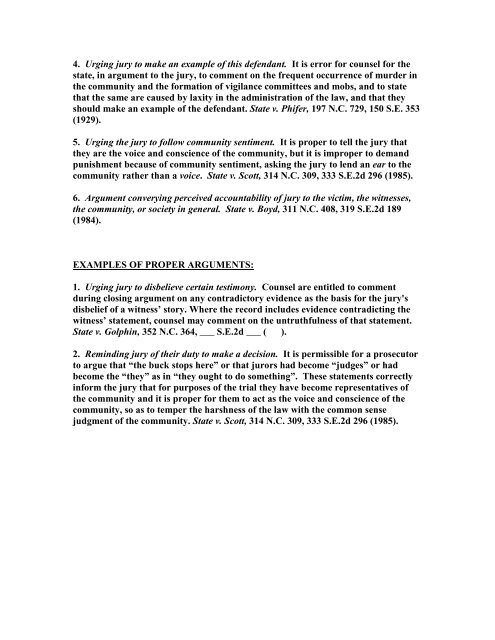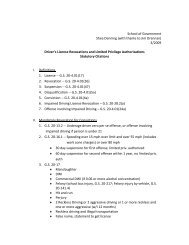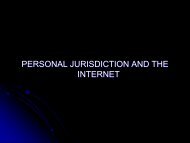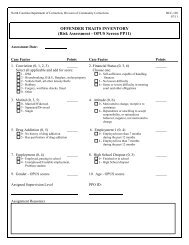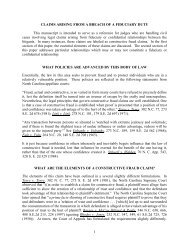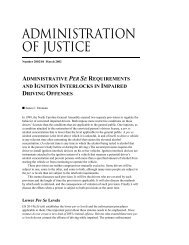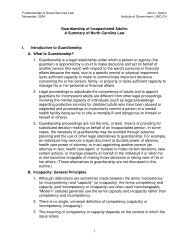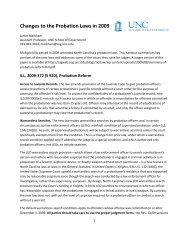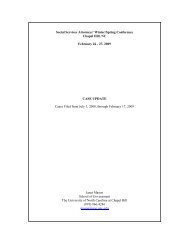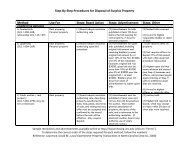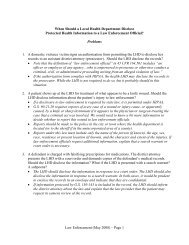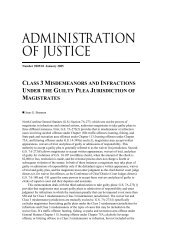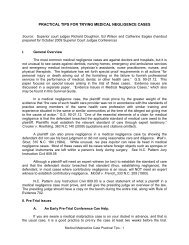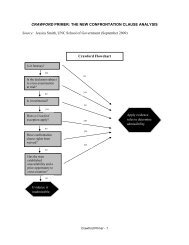Sample Forms and Colloquies
Sample Forms and Colloquies
Sample Forms and Colloquies
You also want an ePaper? Increase the reach of your titles
YUMPU automatically turns print PDFs into web optimized ePapers that Google loves.
4. Urging jury to make an example of this defendant. It is error for counsel for the<br />
state, in argument to the jury, to comment on the frequent occurrence of murder in<br />
the community <strong>and</strong> the formation of vigilance committees <strong>and</strong> mobs, <strong>and</strong> to state<br />
that the same are caused by laxity in the administration of the law, <strong>and</strong> that they<br />
should make an example of the defendant. State v. Phifer, 197 N.C. 729, 150 S.E. 353<br />
(1929).<br />
5. Urging the jury to follow community sentiment. It is proper to tell the jury that<br />
they are the voice <strong>and</strong> conscience of the community, but it is improper to dem<strong>and</strong><br />
punishment because of community sentiment, asking the jury to lend an ear to the<br />
community rather than a voice. State v. Scott, 314 N.C. 309, 333 S.E.2d 296 (1985).<br />
6. Argument converying perceived accountability of jury to the victim, the witnesses,<br />
the community, or society in general. State v. Boyd, 311 N.C. 408, 319 S.E.2d 189<br />
(1984).<br />
EXAMPLES OF PROPER ARGUMENTS:<br />
1. Urging jury to disbelieve certain testimony. Counsel are entitled to comment<br />
during closing argument on any contradictory evidence as the basis for the jury's<br />
disbelief of a witness’ story. Where the record includes evidence contradicting the<br />
witness’ statement, counsel may comment on the untruthfulness of that statement.<br />
State v. Golphin, 352 N.C. 364, ___ S.E.2d ___ ( ).<br />
2. Reminding jury of their duty to make a decision. It is permissible for a prosecutor<br />
to argue that “the buck stops here” or that jurors had become “judges” or had<br />
become the “they” as in “they ought to do something”. These statements correctly<br />
inform the jury that for purposes of the trial they have become representatives of<br />
the community <strong>and</strong> it is proper for them to act as the voice <strong>and</strong> conscience of the<br />
community, so as to temper the harshness of the law with the common sense<br />
judgment of the community. State v. Scott, 314 N.C. 309, 333 S.E.2d 296 (1985).


